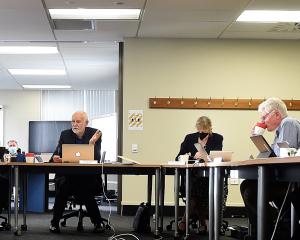Mental health workers donned earphones equipped with a voice track, listening to it while carrying out errands and tasks in central Dunedin, such as buying things or asking directions.
The idea was to give them a taste of what it felt like to hear voices, while trying to cope with life.
Workshop presenter Arana Pearson, who attended from Wellington, told attendees the voices that characterised some psychotic illnesses were misunderstood by the public and the medical profession.
While not the same as a psychotic voice, internal voices were something nearly everyone experienced.
Early childhood imaginary friends, songs "stuck" in people's heads and people talking to themselves were all examples of internal voices.
Religious and political leaders such as Joan of Arc and Jesus, as well as many lesser known figures, had written or spoken of voice-hearing experiences.
Mr Pearson said he wished to make mental health professionals understand voices were real to people who heard them, and should not be described as imagined in patients' files.
Voices heard by psychiatric patients were often "stigmatised" by the public and the men-tal health service.
It should not be assumed internal voices were distressing, although they often were.
Medication often helped remove them, but sometimes did not work, or removed them but did not make the patient feel better, Mr Pearson said.
Mental health nurse educator Mel Green told the Otago Daily Times after the workshop the exercise had "shifted" many people's perception of voice hearing.












